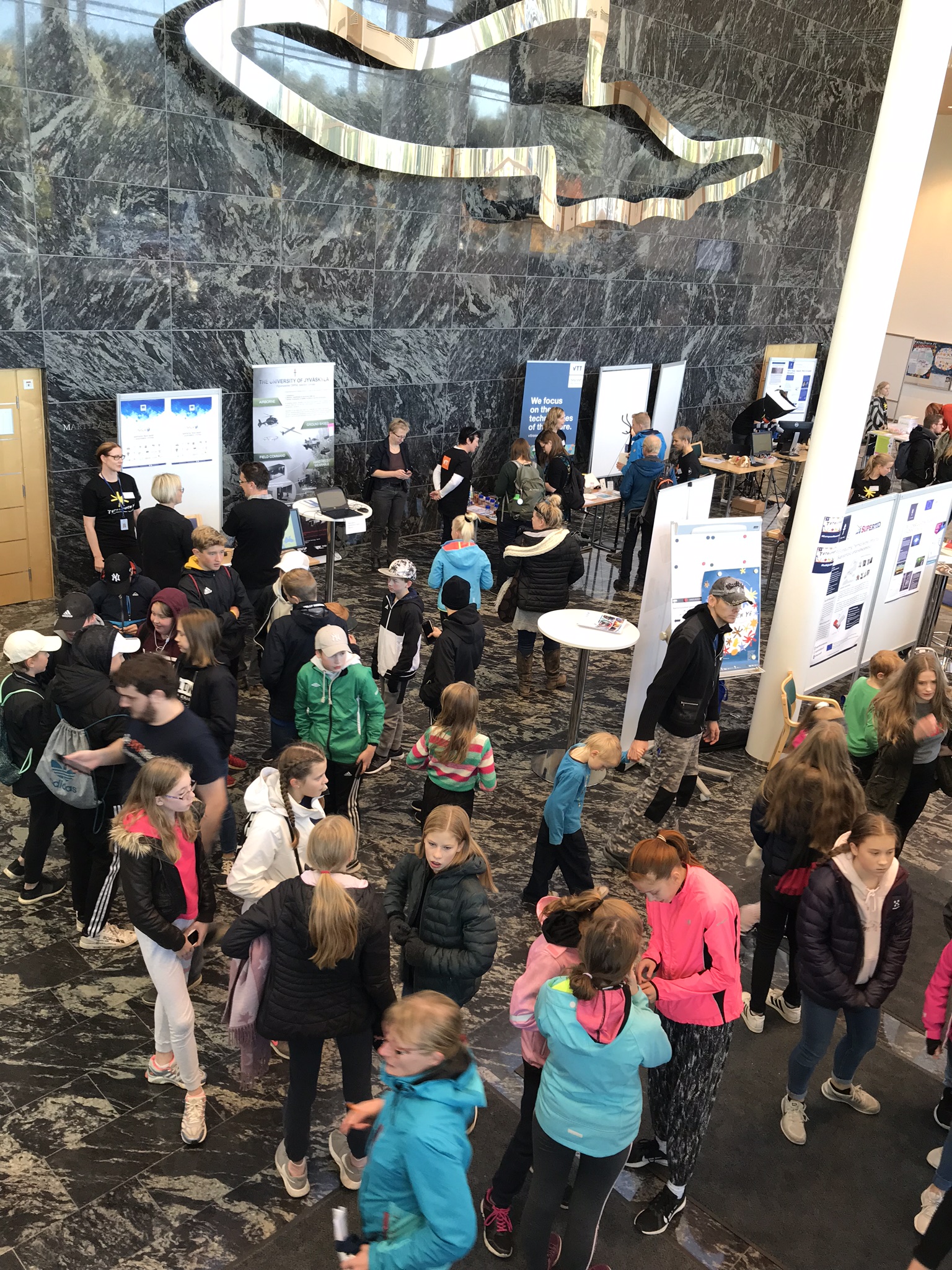
On September 28th, the University of Jyväskylä was once again hosting the European Researchers’ Night along with eleven other locations in Finland. The full-day event presented science and researchers in various workshops, panel discussions and exhibitions. All events were free and open for everyone. This year Researchers’ Night attracted a record-breaking number of visitors in Jyväskylä: over 13,500 people of all age groups. The event was benefiting from other massive events happening in the city at the same time, thus gathering also many attendees who do not follow science and research in their everyday life.
The multidisciplinary program of the University of Jyväskylä included a large selection of things to do and issues to learn for the whole family. In the workshops, children got familiar with natural sciences, teamed up to solve crimes using chemistry, and experienced 3D printing in practice. There were also workshops with robotics and artificial intelligence, including the Open University of the University of Jyväskylä presenting their humanoid robot, Pepper. In addition, the laboratory tours and virtual reality games attracted many youngsters and students. Adult visitors were able to explore interesting facts on brain research, the phases of the Finnish elementary school system, and workplace psychology, among numerous other themes.
TeSLA Project was also exhibited at the event, attracting many interested visitors varying from young families and student groups to senior citizens, as well as experts and scientists from various disciplines. For instance, an advocate for the Central Finland Health Care District was very enthusiastic about the topic and discussed his ideas of applying biometric authentication into health care. TeSLA knowledge was also shared internationally as there were many international visitors, some coming also from other TeSLA partners’ home countries, such as Portugal and Turkey. Many online course teachers and specialists, representing various educational organizations, visited the TeSLA stand, too.
Overall, TeSLA got a lot of positive feedback and was acknowledged of being very current and valuable. Sharing many intriguing discussions about accessibility in higher education provided a chance to introduce TeSLA as a set of tools enabling new opportunities for learners with special educational needs, including physical and mental disabilities. Additionally, TeSLA was mutually seen as an important enabler in terms of respecting social and cultural differences.
The European Researchers’ Night attracted over 13,500 visitors in the University of Jyväskylä. See the TeSLA Project stand on the left side of the photo.
Dr Tarja Ladonlahti and Ms Merja Laamanen presented the TeSLA Project at the Researchers’ Night, sharing many intriguing discussions about accessibility in higher education.
Turkish exchange students Sibel Öncel and Irem Dehmen were fascinated by the TeSLA Project’s video presentation.
FUNDED BY THE EUROPEAN UNION
TeSLA is not responsible for any contents linked or referred to from these pages. It does not associate or identify itself with the content of third parties to which it refers via a link. Furthermore TESLA is not liable for any postings or messages published by users of discussion boards, guest books or mailing lists provided on its page. We have no control over the nature, content and availability of any links that may appear on our site. The inclusion of any links does not necessarily imply a recommendation or endorse the views expressed within them.
TeSLA is coordinated by Universitat Oberta de Catalunya (UOC) and funded by the European Commission’s Horizon 2020 ICT Programme. This website reflects the views only of the authors, and the Commission cannot be held responsible for any use which may be made of the information contained therein.